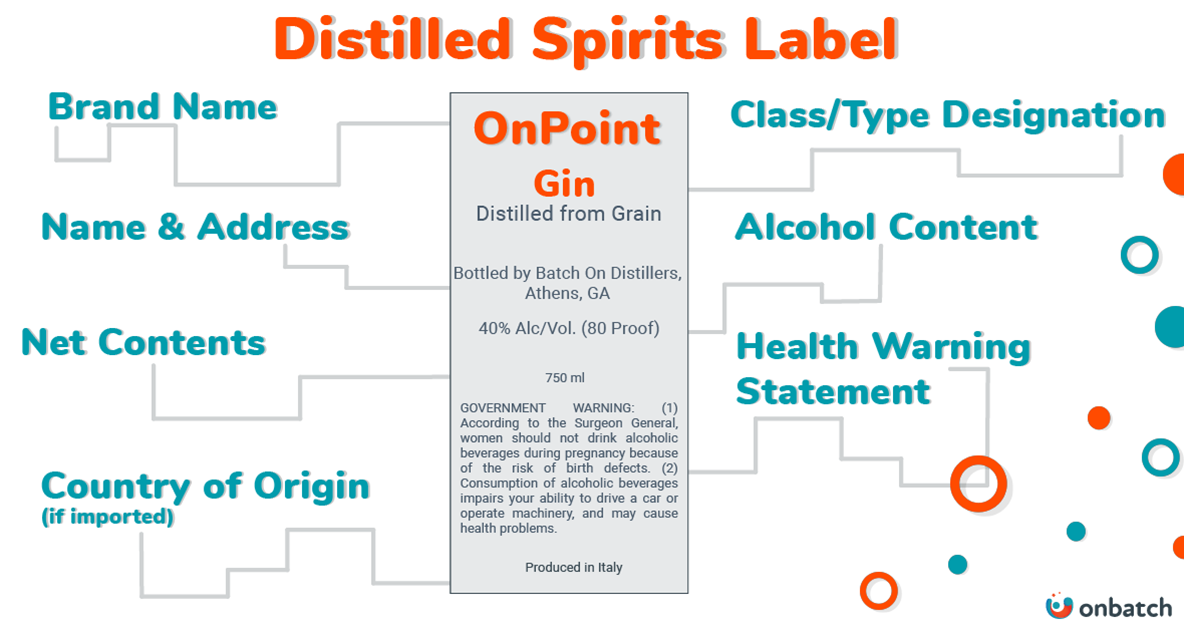Label approval is one of the foundational steps to opening a craft distillery or starting a new line of spirits. The Certificate of Label Approval (COLA) process is regulated under the Federal Alcohol Administration (FAA) Act. The FAA appoints the Secretary of the Treasury to determine regulations to restrict misleading statements on alcoholic beverage labels. Essentially, the TTB approves spirits labels and that label has to be approved before you can sell your spirits.
Regulations
Under the FAA Act, the Tax and Trade Bureau (TTB) regulates the advertising and labeling of alcoholic brands. Any alcoholic beverage that is manufactured domestically and sold interstate is subject to having to retain a COLA for its labeling.
Each unique label must undergo the approval process. All alcoholic beverages are subject to these regulations. If you intend on selling your spirits, you will need to submit your label for approval.
Types of Spirits
Also known as liquor, spirits come in a variety of types. Spirits are crafted by distilling fermented ingredients. Commonly used in the fermentation process are sugar beets, sugarcane, corn, potatoes, rice, barley, and various fruits like peaches, apples, and grapes. These ingredients, along with other botanicals are used to make a variety of spirits and spirit types.
Examples of spirit class/type include:
- Bourbon Whisky
- Rye Whisky
- Cognac
- Straight Bourbon Whiskey
- Distilled Gin
- Fruit Brandy
- Ouzo
- Rum
- Vodka
Distilled Spirits Label Contents
Brand name
The brand name may not mislead consumers about age, identity, origin, or other characteristics of the product.
Name & address
The name and address of the bottler or importer must present, but the producer can use the main business address in place of the literal location of bottling.
Alcohol content
The alcohol content of the product must be expressed in percent by volume. The producer may also provide degrees of proof in addition.
Health warning statement
This is the government warning statement required on all alcoholic beverages over 0.5% abv.
Country of origin
This is also required for beverages that have been imported. Regulated by the TTB and required by US Customs and Border Protection. Basic statement “product of (country)” or “produced in (country).”
Net contents
Must be in metric units of measure. Distilled spirits can be bottled in 1.75L, 750ml, 375 ml, 200 ml, 100 ml, or 50ml. A can must be filled to 355 ml, 200 ml, 100 ml, or 50 ml.
Class/Type designation
Must contain a designation that accurately identifies the contents of the bottle. This refers to the type of spirit that's in the bottle, Gin or Brandy, for example. Regulations are very specific for each spirit class/type.
COLA Application Steps
Step 1: Submission
Applicants must submit legible copies of their labels to the TTB via paper submissions or on the COLA online website. Any label affixed to a bottle must be submitted—even back labels, neck labels, emblems, etc. Copies of all labels are either mailed in with the application or submitted online using the COLA online platform.
Step 2: Review
The review process for your label will take some time. During this period, you will see one of the following statuses:
- Received
- Assigned
- In review
- Hold for research.
A correction notice will be sent if there are corrections needed. You have 30 days to respond to the correction notice. If resubmissions do not contain corrections, your label may be rejected.
Step 3: Approval
The TTB maintains all approvals in the site’s public registry. Your approval can then be indexed on the site within 48 hours. The registry is considered public record.
Now that you see what is required and what to expect, it is up to you to get the process underway. Remember that the main reason for COLA certification is to keep crafters honest with their labeling. This is not a red tape measure designed to hinder your progress. These regulations are designed to protect both the consumer and the integrity of your brand. More information regarding COLAs can be found on the TTB website.
Written by Shawn Patrick
